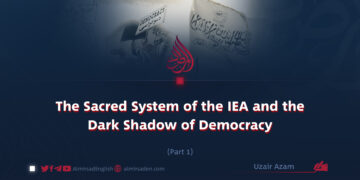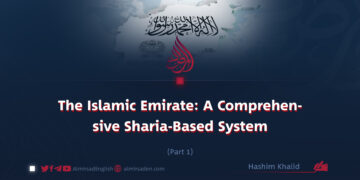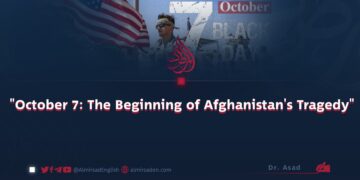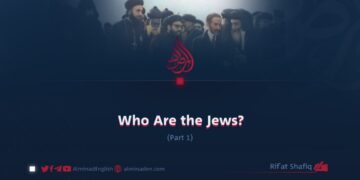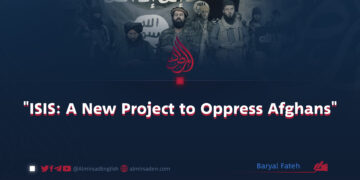Part 13
Author: Mawlawi Ahmad Ali
Ghulam Mirza Ahmad Qadiani, who claimed prophethood, denied the unanimous belief in the Finality of Prophethood (Khatm-e-Nubuwwat), presented himself and his followers as part of the Islamic Ummah, and propagated his heretical beliefs from the platform and methodology of Islam. He utilized all Islamic symbols while promoting his deviant ideologies. In response, an organized movement was launched against him under the banner of safeguarding the Finality of Prophethood (Khatm-e-Nabuwwat). Muslims carried out a campaign that eventually resulted in a parliamentary decision declaring Qadianis as a non-Muslim group. This decision stripped them of the right to call themselves Muslims, label their worship places as mosques, or invite others to their ideology under the guise of Islam.
Although this decision did not fully align with Sharia law—since Qadianis are considered apostates—if the governing system had been Islamic instead of democratic, the Sharia obligation would have been to offer them an opportunity to repent. If they refused, the prescribed punishment under Islamic law would have been execution.
Nonetheless, this ruling was a partial success. Qadianis can no longer openly preach in the name of Islam, run schools under the Islamic banner, establish their places of worship as mosques, or hold gatherings and events in the name of Islam, Sharia, Quran, or Sunnah.
In contrast, the Rawafidh continue to carry out such activities under the guise of Islam without restrictions. Similarly, due to efforts by Turkey’s Ikhwani-led democratic government and its leader Recep Tayyip Erdoğan, certain reforms were implemented in secular Turkey. One of these was the reversion of the historic Aya Sofya Mosque, which had been converted into a museum by secularist leader Mustafa Kemal Atatürk, back into a mosque.
Given these circumstances, if someone prefers a democratic system over other non-Islamic regimes—such as monarchies, military dictatorships, or religious systems like Hinduism, Buddhism, or even communism—and shows sympathy or support for such a system, this is not considered disbelief (kufr). However, if such support opposes the establishment of an Islamic system, it becomes outright kufr.
An example can be drawn from the story of Negus (An-Najāshī), the ruler of Abyssinia, who had not yet embraced Islam. His rule was based on disbelief (kufr), yet the Prophet Muhammad (peace be upon him) praised him and permitted his Companions to migrate to Abyssinia because of the justice and fairness in his governance.
As documented in Al-Ayyam Al-Nadra fi As-Sirah Al-Atrah (Vol. 5, p. 6) by Abu Hashim Salih bin Awad Al-Mughamisi:
ثم جاء الإذن بالهجرة إلى الحبشة، ولم يكن هذا من السماء، وإنما كان اجتهاداً منه ﷺ، وأخبر أن ذلك الملك الذي يوجد في الحبشة، وهو النجاشي ملك لا يظلم الناس عنده، رغم أن النجاشي لم يكن مسلماً، ولا يؤمن بالله ولا باليوم الآخرة، ولا يعرف عنده دين الإسلام، لكن المؤمنين مستأمنون عنده. فأذن النبي ﷺ لأصحابه بالهجرة إلى الحبشة، وهذا هو التعريف الحقيقي لما يسمى باللجوء السياسي اليوم.
Similarly, in Fi Sabil Al-Aqidah Al-Islamiyyah (Vol. 1, p. 86), Abdul Latif Al-Qantri explains:
وعندما اشتد أذى مشركي قريش على المسلمين شرعوا في الهجرة إلى خارج نفوذ المشركين، فبعض المسلمين هاجروا إلى الحبشة المسيحية، إذ وجدوا في حاكمها (النجاشي) حسن الاستقبال والجوار والرعاية والأمان وسعة الصدر، وهذا لم يجدوه بين أهلهم وفي بلدهم مكة، إذ لم يضق صدره من المسلمين، وهم في بلده وإن كانوا مخالفين له في عقيدته ودينه ذلك؛ لأنه مسيحي صميم غير متعصب، ولم يكن في قلبه أي حقد على الإسلام وعقيدته، وقد أثنى الله في القرآن عليهم – الحبشة – كما جاء في قوله تعالى: ﴿لَتَجِدَنَّ اَشَدَّ النَّاسِ عَدَاوَةً لِّلَّذِيْنَ اٰمَنُوا الْيَهُوْدَ وَالَّذِيْنَ اَشْرَكُوْا ج وَلَتَجِدَنَّ اَقْرَبَهُمْ مَّوَدَّةً لِّلَّذِيْنَ اٰمَنُوا الَّذِيْنَ قَالُوْۤا اِنَّا نَصٰرٰىؕ ذٰلِكَ بِاَنَّ مِنْهُمْ قِسِّيْسِيْنَ وَرُهْبَانًا وَّاَنَّهُمْ لَا يَسْتَكْبِرُوْنَ ٨٢﴾ (سورة المائدة: 82)
Additionally, In the book “Seerat Ibn Hisham,” (Vol. 1, p. 291), it is narrated by Umm Salama (may Allah be pleased with her) that when we were migrants in Abyssinia, we used to feel happy about Najashi’s victories and dominance because he was very kind to us. Once, he faced a battle against another Abyssinian man over governance and authority. Umm Salama (may Allah be pleased with her) swears that no greater sorrow ever befell us in Abyssinia than this, as we were deeply concerned that if someone else came to power, they might not recognize our rights. Therefore, we prayed earnestly for Najashi’s victory. The battlefield was across the Nile, so we discussed among ourselves who could go to the battlefield and bring us accurate news.
Hazrat Zubair bin Al-Awwam (may Allah be pleased with him) was young at the time, and he said, “I will go.” So they inflated a waterskin for him, and he used it to cross the Nile. He reached the battlefield, and after some time, he returned, running toward us while waving his clothes and calling out, “Rejoice! Najashi has won the battle, and his enemy has been destroyed.” Umm Salama (may Allah be pleased with her) swears, “By Allah, we were never as happy as we were at that moment.”
If we analyze this, Najashi’s system was not based on Islamic governance, as he did not implement an Islamic system. However, the migrants still appreciated his rule because he had granted them refuge and took great care of them. Therefore, in comparison to another non-Muslim ruler, they prayed for Najashi’s success. Although Najashi’s system was also non-Islamic, the migrants’ support was based on the justice and kindness they experienced under his rule. As Umm Salama (may Allah be pleased with her) stated:
المهاجرون يفرحون بانتصار النجاشي، قالت: فوالله! إنا لعلى ذلك إذا نَزَلَ بِهِ رَجُلٌ مِنَ الْحَبَشَةِ يُنَازِعُهُ فِي مُلْكِهِ. قَالَتْ: فَوَاللهِ! مَا علمتُنا حَزِنَّا حُزْنًا قَطُّ كَانَ أشدَّ عَلَيْنَا مِنْ حُزْنٍ حَزِنَّاهُ عِنْدَ ذَلِكَ؛ تَخَوُّفًا أَنْ يَظْهَرَ ذَلِكَ الرَّجُلُ عَلَى النَّجَاشِيِّ، فَيَأْتِي رَجُلٌ لَا يَعْرِفُ مِنْ حقِّنا مَا كَانَ النجاشيُّ يَعْرِفُ مِنْهُ. قَالَتْ: وَسَارَ إلَيْهِ النَّجَاشِيُّ، وَبَيْنَهُمَا عَرضُ النِّيلِ، قَالَتْ: فَقَالَ أَصْحَابُ رَسُولِ اللَّهِ صَلَّى اللَّهُ عَلَيْهِ وَعَلَى آلِهِ وَسَلَّمَ: مَنْ رَجُلٌ يَخْرَجُ حَتَّى يحضرَ وقيعةَ الْقَوْمِ ثُمَّ يَأْتِينَا بِالْخَبَرِ؟ قَالَتْ: فَقَالَ الزُّبَيْرُ بْنُ الْعَوَّامِ: أَنَا. قَالُوا: فَأَنْتَ. وَكَانَ مِنْ أَحْدَثِ الْقَوْمِ سِنًّا. قَالَتْ: فَنَفَخُوا لَهُ قِرْبَةً، فَجَعَلَهَا فِي صَدْرِهِ، ثُمَّ سَبَحَ عَلَيْهَا حَتَّى خَرَجَ إلَى نَاحِيَةِ النِّيلِ الَّتِي بِهَا ملتقَى الْقَوْمِ، ثُمَّ انْطَلَقَ حَتَّى حَضَرَهُمْ. قَالَتْ: فَدَعَوْنَا اللهَ تَعَالَى لِلنَّجَاشِيِّ بِالظُّهُورِ عَلَى عدوِّه والتمكين له في لَادِهِ. قَالَتْ: فَوَاللهِ إنَّا لعلَى ذَلِكَ مُتَوَقِّعُونَ لِمَا هُوَ كَائِنٌ، إذْ طَلَعَ الزبيرُ وَهُوَ يسعَى، فَلَمَعَ بِثَوْبِهِ وَهُوَ يَقُولُ: أَلَا أَبْشِرُوا، فَقَدْ ظَفِرَ النجاشيُّ، وَأَهْلَكَ اللهُ عدوَّه، ومكَّن لَهُ فِي بِلَادِهِ. قَالَتْ: فَوَاللهِ مَا عَلِمْتُنَا فَرِحنا فَرْحَةً قَطُّ مثلَها.
Let us return to the main topic. The issue we initiated was whether collaboration with disbelievers against Muslims is an act that categorically constitutes disbelief (kufr), or whether there is nuance to this ruling.
In earlier sections, we clearly explained that the position of Ahl al-Sunnah wal-Jama’ah of Salaf, the four Imams, the earlier scholars, and the majority of later scholars—is as follows:
If such a criminal act stems from corrupt or malicious beliefs, it constitutes apostasy (irtidad). However, if it is motivated by personal or worldly gain, it is considered a major sin (kabirah), but it does not amount to disbelief (kufr).
We supported this stance with clear and unequivocal texts and statements from the Salaf, some early scholars, and renowned and esteemed scholars.
































